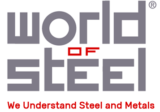Industry-Specific Standards and Specifications for Fasteners
Different industries have their own specific standards and certifications to ensure the quality, safety, and performance of fasteners. Here’s a detailed breakdown of key standards for some major industries:
Aerospace Industry
– AS9100: A quality management system standard specific to aerospace. It includes all ISO 9001 requirements plus additional requirements for the aerospace industry.
– NASM (National Aerospace Standards): Covers various specifications for aerospace fasteners.
– MS (Military Standards): Often used in aerospace for specialized fasteners.
– AN (Air Force/Navy): Specifications for fasteners used in aerospace applications.
Construction Industry
– ISO 898-1: Specifies the mechanical properties of fasteners made of carbon steel and alloy steel, relevant for construction fasteners.
– ASTM A325 / A490: Specifications for structural bolts used in steel-to-steel connections.
– DIN 6914: Standard for high-strength bolts used in structural steel joints
Oil and Gas Industry
– API (American Petroleum Institute) Standards: Relevant for fasteners used in oil and gas applications, such as API 20E for bolting specifications.
– NACE MR0175/ISO 15156: Specifies material requirements for resistance to sulphide stress cracking in corrosive oilfield environments.
– ASTM A193 / A320: Standards for alloy and stainless-steel bolting materials for high-temperature or high-pressure service.
Electronics and Electrical Industry
– IPC J-STD-001: Requirements for soldered electrical and electronic assemblies, including standards for fastening components.
– UL Standards: Underwriters Laboratories standards for fasteners used in electrical applications to ensure safety and performance.
– RoHS (Restriction of Hazardous Substances): Compliance for fasteners used in electronics to ensure they are free of certain hazardous materials.
Medical Device Industry
– ISO 13485: Quality management systems for medical devices, including fasteners used in medical applications.
– FDA Regulations: Fasteners used in medical devices must comply with FDA requirements for safety and efficacy.
– ASTM F136: Standard specification for titanium and titanium alloy fasteners used in surgical implants.
Automotive Industry
– IATF 16949:2016: Quality management system standard specific to the automotive sector.
– SAE J429 / J995: Standards for mechanical and material properties of automotive fasteners.
– PPAP (Production Part Approval Process): Ensures that suppliers meet all customer engineering design record and specification requirements.
Marine Industry
– ASTM F593 / F594: Specifications for stainless steel bolts, hex cap screws, and studs used in marine environments.
– MIL-DTL-1222: Military specification for fasteners used in marine and other critical environments.
– DIN 7990: Standard for fasteners used in shipbuilding
Renewable Energy Industry
– ISO 898-1: Standard for mechanical properties of fasteners used in wind turbines and solar panel installations.
– ASTM A153: Specification for zinc coating (hot-dip) on iron and steel hardware used in renewable energy applications.
– IEC 61400-2: Standard for small wind turbines, including fasteners used in their assembly.
General Standards Across Industries
– ISO 9001: A general quality management system standard applicable across various industries.
– DIN Standards: Widely used German standards for various types of fasteners, ensuring consistency and quality.
– ASTM Standards: Comprehensive set of standards for different types of fasteners, covering materials, mechanical properties, and testing methods.
– ANSI (American National Standards Institute): Provides various standards for fasteners used in mechanical and structural applications.
By adhering to these industry-specific standards, suppliers can ensure their fasteners meet the necessary quality, safety, and performance requirements for their intended applications. It is also important to conduct regular audits and inspections to verify compliance and maintain high standards.
Alex Gohil
(Research & Data Analyst)
Intern at World of Steel
